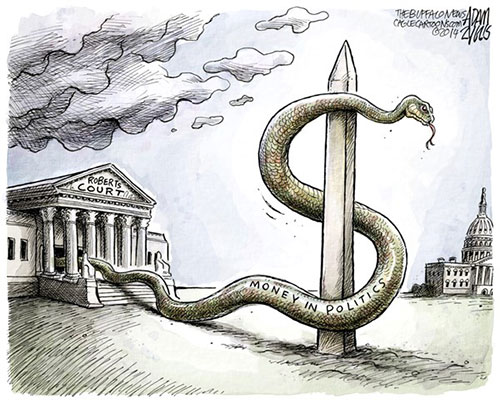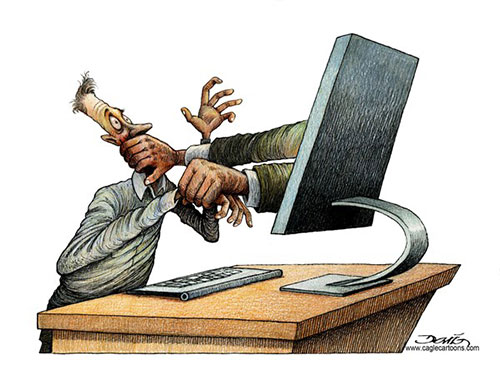
Democrats to Repeal First Amendment
September 11, 2014
Section 1 of the proposed amendment (S. J. Res. 19) says: "Congress and the States may regulate and set reasonable limits on the raising and spending of money by candidates and others to influence elections." The key words here are "and others," meaning anybody Congress chooses to regulate and "to influence elections," meaning not just express advocacy that calls on voters to support or oppose a candidate, but any communication politicians think might influence an election.
SCOTUS Decision
In 1976, the Supreme Court in Buckley v. Valeo found there was no compelling governmental interest that would justify regulating speech that mentions candidates without calling for their election or defeat. The Judiciary Committee report accompanying the new proposed constitutional amendment is clear on the purpose of Section 1: "It expressly overturns Buckley v. Valeo." Got that? No more First Amendment protections for any political speech that Congress or your state legislature decides might "influence elections" — regardless of its specific content. Any criticism of an elected official's record or communication about an upcoming vote could be restricted. Section 2 of the proposed amendment says: "Congress and the States shall have power to implement and enforce this article by appropriate legislation, and may distinguish between natural persons and corporations or other artificial entities created by law, including by prohibiting such entities from spending money to influence elections." This is an open-ended grant of power to outright prohibit speech not just by corporations, but other "entities created by law," including non-profit groups. The movie "Hillary" that was at the heart of the Citizens United case could be banned under this amendment, and if Congress — and the states — can ban movies they can surely also ban books, pamphlets, videos and any other vehicle for political speech paid for by a group.
Internet Censorship
By implication, then, the proposed amendment also overturns the landmark civil rights case NAACP v. Alabama, which protected the privacy of the members of associations to allow them to engage in anonymous political speech. Congress — and the states, including Alabama — would now have the power to compel disclosure for any criticism of an elected official, and to outright ban speech by groups. The only exception? The media. Section 3 of the proposed amendment gives them an express carve-out: "Nothing in this article shall be construed to grant Congress or the States the power to abridge the freedom of the press." So if you own a newspaper, radio station, or TV station it's free speech as usual. If you don't, tough. This amendment would give Congress and the states the power to regulate, restrict, and even ban political speech. The First Amendment would be effectively repealed, limited to protecting political speech only for the media. I don't think supporters of this amendment deserve to be reelected. Does saying so mean they should be allowed to ban this column?
©2014 Phil Kerpen. This column has been edited by the author. Representations of fact and opinions are solely those of the author. Distributed to subscribers
for publication by E-mail your news & pHotos to editor@sitnews.us Publish A Letter
|
||

